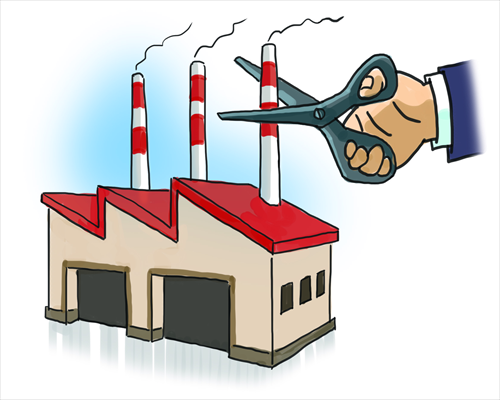Beijing is already doing part on climate

Illustration: Liu Rui/GT
The recent agreement between Chinese President Xi Jinping and US President Barack Obama, in which the US committed to reduce greenhouse gas (GHG) emissions up to 28 percent below its 2005 levels while China committed to peak its emissions by 2030, was one of the highlights of the recent Asia-Pacific Economic Cooperation meeting in Beijing.
The details on how this will exactly be done are fuzzy and will be left to negotiations in the UN Climate Change Conference in Paris next year. But Xi's commitment to the 2030 goal means that in the coming months, China will be subjected to international pressure to turn words into deeds by accepting carbon dioxide (CO2) reduction measures that may be detrimental to its economic development.
When it comes to fighting air pollution, China has many reasons to act decisively. The growing number of smoggy days in its big cities and the rise in pollution-related illnesses require meaningful action in reducing the emissions of substances that are actually detrimental to people's health - sulfur, nitrogen oxide, mercury, and particulate matter. But CO2 is not one of them.
Contrary to the attempts by many in the West to label CO2 as "pollution," its emissions have no direct impact on our health. It is also far from clear that increased CO2 levels and the warming they supposedly cause have a net negative impact on humanity.
Since 1950, while the average global temperature increased by 0.2 percent, global per capita GDP has increased by 400 percent and global wild plants growth, enabling more people and animals to thrive, has risen by 15 percent. In China, life expectancy has increased by almost 20 years due to improvements in quality of life enabled by the use of fossil fuels. All of those should be weighed against the negatives or climate change.
Now that China has made a commitment to cap its emissions, it should proceed with caution and ensure that the fulfillment of its side of the bargain is in lockstep with that of the US. This would be a prudent thing to do in light of Obama's track record of empty promises and lofty goals.
Obama's commitment to a deep cut in US emissions is less plausible especially with the backdrop of the Republican takeover of the Senate. With a Senate Majority Leader, Mitch McConnell, from the coal producing state of Kentucky, and incoming Chairman of the Senate Environment and Public Works Committee James Inhofe, calling the Obama-Xi agreement a "non-binding charade," the chance of implementation from the US side is close to nil.
The Economist recently ranked 20 policies implemented around the world, both nationally and internationally, according to their contribution to GHG reduction.
Of the 14.3 billion tons of CO2 equivalent cut annually, only four policies spared us more than 1 billion tons per year: the Montreal Protocol designed to phase out the production of chemicals that are responsible for ozone depletion (5.6 billion), the use of hydropower (2.8 billion), the use of nuclear power (2.2 billion) and China's one-child policy (1.3 billion).
Interestingly, the rest of the policies in The Economist survey, including greater use of solar and wind power, adoption of building standards, efficiency and forest preservation programs, most of which get more media attention than they actually deserve, collectively make only 17 percent of the total reduction.
In reviewing the policies that really made a difference in curbing carbon emissions, China's contribution is much more significant than commonly believed.
As the home to a fifth of the world's hydroelectric power capacity, China can claim credit for a reduction of 0.7 billion tons a year, almost 10 times the impact of the high-profile EU renewable energy program and the US vehicle fuel economy standards combined.
As it begins its preparations for the Paris climate summit, China should reject the notion widely held in the West that it is a climate spoiler.
Instead of being defensive about its emission reduction, China should highlight its contribution to the global effort and challenge the West to deliver cuts similar in their magnitude.
Those who lecture China on its climate performance should realize that what matters in the end is who made the deepest cuts regardless of the methods used, and that the policies that make the headlines are not those that make the difference.
The author is senior adviser to the US Energy Security Council and co-chairman of the Global Forum on Energy Security. opinion@globaltimes.com.cn